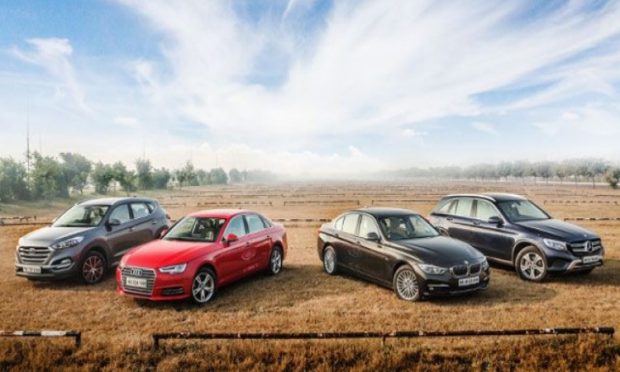
Higher taxes, other levies hurting luxury car sales; govt must address: Audi India head
PTI, Jan 26, 2020, 4:46 PM IST

New Delhi: High GST rates, import duties and registration taxes are limiting the growth of luxury car market in India and the government must consider reducing these in the upcoming Budget, according to German luxury carmaker Audi.
The company, which saw 28.92 per cent decline in sales at 4,594 units in 2019 as against 6,463 units in 2018, said every major player in the luxury segment saw a decline in sales last year and government support would help in overcoming the downturn.
“Luxury car sales are impacted by high GST rates, import duties and registration taxes, which is limiting the segment to a mere 1.2 per cent of the overall car market; when compared to other global markets,” Audi India head Balbir Singh Dhillon said.
He further said, “Every major luxury car player has de-grown in volumes during 2019.”
Hence, Dhillon said, “We would urge the government/GST council to reduce GST, import duties and rationalise the vehicle registration cost on luxury cars, across the country.”
Indian luxury car market comprising top five players – Mercedes, BMW, Audi, JLR and Volvo – witnessed a total sales of 40,340 units in 2018 and is expected to see a decline in 2019. Some of the companies are, however, yet to release their up to date sales data.
Luxury car market leader Mercedes Benz had reported 11.28 per cent decline in retail sales at 13,786 units in 2019 as compared to 15,538 units in 2018, while German compatriot BMW reported 13.8 per cent dip in its sales at 9,641 units in India last year as compared with 11,105 units sold in 2018.
Dhillon further said, “Easy lending by the banks and NBFCs will help expand the market and boost the overall automotive industry.”
Stating that the government has placed a definitive emphasis on electric vehicles, he, however, said setting up of necessary charging infrastructure is key to the success of the EV-centric ecosystem.
“It is also worthwhile to mention that plug-in hybrid vehicles should also be encouraged with lower GST, import duties and registration taxes. This will encourage customers to take the first step towards PHEVs (plug-in hybrid electric vehicle) and eventually move to electric mobility in India,” he added.
Udayavani is now on Telegram. Click here to join our channel and stay updated with the latest news.
Top News
Related Articles More

India not reaping benefits of democratic dividend: Raghuram Rajan

Markets slump for third day on fears of escalating tensions in Middle East; IT stocks drag

Tesla is planning to lay off 10 of its workers after dismal 1Q sales, multiple news outlets report

With just Rs 150 base airfare take a 50-minute flight

Byju’s founder Raveendran to take over firm’s daily operations after CEO Mohan’s resignation
MUST WATCH
Latest Additions

Bakery owner in Palghar held for molesting 4 minor girls

LS polls 2024: Separate local manifesto for development of Udupi-Chikkamagaluru: Jayaprakash Hegde

Faltering Punjab Kings, Mumbai Indians desperate to resurrect IPL campaign

Search continues for missing persons in Kashmir boat tragedy

UP: Ram Lalla honoured with ‘Surya Tilak’ on Ram Navmi

























